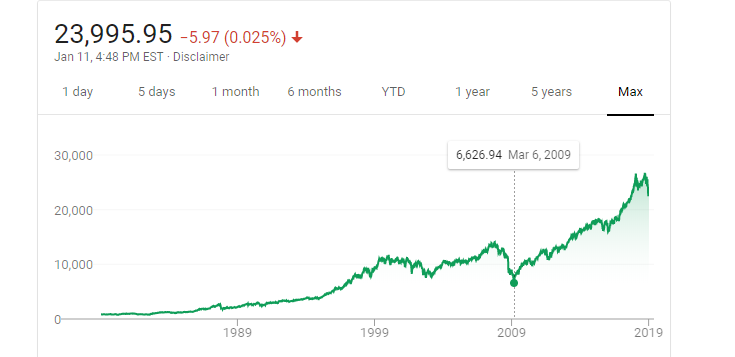You Are Not Your Net Worth

You Are Not Your Net Worth
What Does Net Worth Mean?
Simply stated, net worth (used interchangeably with Equity), is an individual’s assets minus liabilities. Since the majority of most persons assets are tied up in 401k retirement accounts, these market participants can see their portfolios gain significant value in a short measure of time.
On the flip-side of this coin is that portfolios can also lose monstrous value in relatively short periods of time as well. Net worth can, and often does, change in the blink of an eye through no fault or cause of your own.
Lately, I’ve seen a lot of bloggers writing about their net worth and its subsequent tumble. It seemed like many of them have been basing their blogs around their climbing net worth, and now with Mr. Market being so erratic, their entire financial world is beginning to turn upside down. I wanted to write this post to remind you: you are not your net worth. You, in fact, are so much more.

Mr. Market Is Erratic
I found this little gem in a stock news report from Seeking Alpha Wall Street Breakfast News: “December 2018 has been the worst month for the stock markets since the Great Depression.”
Statistics like that really stand out to any investor and can make investing in the market certainly seem like a scary proposition. It is no wonder that market participants can be awestruck as to the quick and swift rises and falls in their positions.
We have been lucky in that we have had a bull run for the past nine years, dating back to 2009. During this market upswing, many people have been able to make great money and see significant gains on their stock portfolios. Since many individuals have their bulk of their net worth tied up into the retirement portfolios, the past nine years have been quite the boon.
However, the way the stock market functions means that booms cannot go on forever. There must be periods of busts. It’s the principle of balance in action.
During the past few decades, it has become clear that with the feds regulation of interest rates is that we now have longer bull markets with sharper highs and longer bear markets with sharper lows.
As you can see from the chart below, the Dow Jones Industrial Average have been steadily increasing over the years, to the 24k level as of this posting. However, we have seen sharper lows during this time period as well, which is seen in the 6.6k level experienced in Mar 2009.

Source: Google Finance
Being that this boom-bust cycle is driven in large part by the fed and macroeconomic factors, an individual has very little control over how their net worth performs at any given point in time. How then does one divorce themselves from these market fluctuations?
Avoid Basing Your Value on Numbers
First off, recognize that you are not your net worth. I want to make sure I reiterate that for anyone with money in the markets; you are NOT your net worth.
As astute investors, we do like to see our assets appreciate, but our assets appreciating do not define who we are. It is great to keep track of financial indicators to track your progress in growing your asset base; however, keep in mind that the KPIs are only tools, not an end-all, be-all of your financial picture.
For instance, take ownership in a stock. If our stock positions trend upward, we feel great as we see gains in our portfolios. Everyone likes to see their portfolios in ‘green’ territory.
However, if our positions are trending downward, we feel badly, as we are technically losing money. No one wants to see a stock in the red. It makes one ask the questions:
- Did I buy too early?
- Is my purchase wrong?
- Is this company headed for bankruptcy?
- Will I lose my hard-earned money?
These are all good questions to ask, but keep in mind that many times, a general market decline has more to do with macroeconomic events outside of our direct control and not material challenges in the stocks that we own.
The companies themselves are fine, but Mr. Market’s overall outlook on the economies of the world is more negative, which sends stocks into sell territory.

Do these events, over which we have no control that drive down our net worth, make us less on track for achieving our financial dreams?
Definitely not. In fact, I believe these declines are a good thing for investors, especially younger investors as it helps one build wealth faster. More on this later.
Although I do believe that net worth is a good metric to track an individual’s portfolio performance over the years, it is not the end-all and be-all of your financial picture. This net worth must be taken in tandem with other considerations such as cash position, number of stocks held in the portfolio, and annual dividends being generated by the portfolio, etc.
These, along with other pertinent metrics, can put the ups and downs of the market in perspective.
So long as you are investing in good companies at great prices, you should welcome market downturns as you now have a chance to buy more ownership at lower entry points. This brings us to our next mindset.
Take a Long-Term View
The number two principle I advocate is to change your view of stock ownership. I believe that there are many people in the world who do not see shares of stock in a company as ownership, but rather as dollar figures or bits and bytes that go up and down seemingly without much reason.
There are many reasons why stocks go up and down. Take the following situation:
Does the company miss its earnings report by a cent?
Does that send the stock cascading downhill?
Should you be concerned?
Perhaps, but also perhaps not. It could just be a minor blip that presents a great buying opportunity.

I have personally adopted a strategy of buying great companies, at great prices, which pay steady dividends.
Part of what makes this dividend investing strategy so lucrative is that if the investor does proper due diligence on the front end and verifies metrics such as adequate cash flow to cover the dividend, a good amount of working capital, and solid future growth prospects of the company, the investor can largely ignore market fluctuations. Translated into financial terms, net worth rising or falling becomes of lesser significance as the investor wins both ways.
Why is this so?
Because with the long-term view of the stock market, a rising or declining stock price does not matter. If the stock happens to go up, the dividend investor gains via stock price appreciation. If the stock goes down, the dividend yield goes up and the investor accumulates more shares via the DRIP investing method. This is similar to the principle known as dollar-cost averaging.
By adopting this mindset, market fluctuations become less significant, and an investor’s growing or declining net worth take on a different meaning. Investors can sit back, support the companies they own via purchasing their products, while continuing to receive a stable dividend payment. This is the ultimate long-term view of stock ownership.
Warren Buffett summed up purchasing securities perfectly with this quote:
“Buy stocks as if the market would be closed tomorrow with no date set to reopen.”
Buy and Hold is the key to a solid investing strategy.
Keep the Ultimate Long-Game in Mind
Our lifetimes are finite. The fact remains that though we all want to live forever, we will all eventually pass on to the great beyond. After all, the two great unifiers in this life are death and taxes.
One area that I’ve really opened up to the last few years is the idea of being more connected with the world and people around me. Giving back to the society in which I live and helping others to achieve their utmost potential are the two things I now seek after. I think of this renewed focus as my new spiritual quest. As part of my journey, I am seeking that place where “passion meets purpose”. My vision is to be in situations and circumstances that allow me to find this place.
Why do I bring this up this post about net worth? Simple; in a previous life (aka my last work situation), I chased money.
While I did very well for myself, I found that the place where passion meets purpose did not exist for me. I excelled at what I did because I believe in hard work, but at the end of the day I just didn’t feel like I was accomplishing anything worthwhile.

My net worth was increasing substantially but at what cost? I would argue I paid for it with declines in my physical, mental, and spiritual health. I realized that chasing after net worth accumulation is a fleeting endeavor, and if that is my only end goal in life, will leave me dissatisfied and without meaning in my short time on this earth.
Now where I’m at is a position where I am actively seeking to find that place where I can make ends meet while pursuing situations in which I am at my best possible energy levels. By doing so, I know I will find the intersection point of where I want to live.
We are only here for a limited amount of time; our lifespan is a mere sliver of a brief second in the sands of time. Let’s make sure what we are doing on a daily basis counts for more than just the accumulation of a number. Remember, you are more than your net worth!
Bringing It Home
I have nothing against hard work and making good money to provide for ourselves and our loved ones. Rather, I want to have people realize their fullest potential especially in regards to what they do for work. There is more to a life than just that number.
Net worth is a great figure to track and is one that every investor should compute in their own life. However, to make it that one thing that determines success or failure, especially when that number is highly dependent on forces outside of our control, does not make much sense to me. Rather, it will help to have other ratios and metrics in addition to net worth to make sure to keep that figure in its proper perspective.
Also, by finding the place where passion and purpose intersect, we will be much better suited to seeing that life is much more than increasing money or net worth. By seeking this path, we can rest assured that no matter what way our net worth is trending, our legacies will be on track for astronomical returns.

